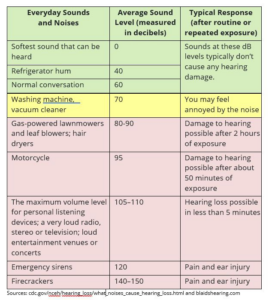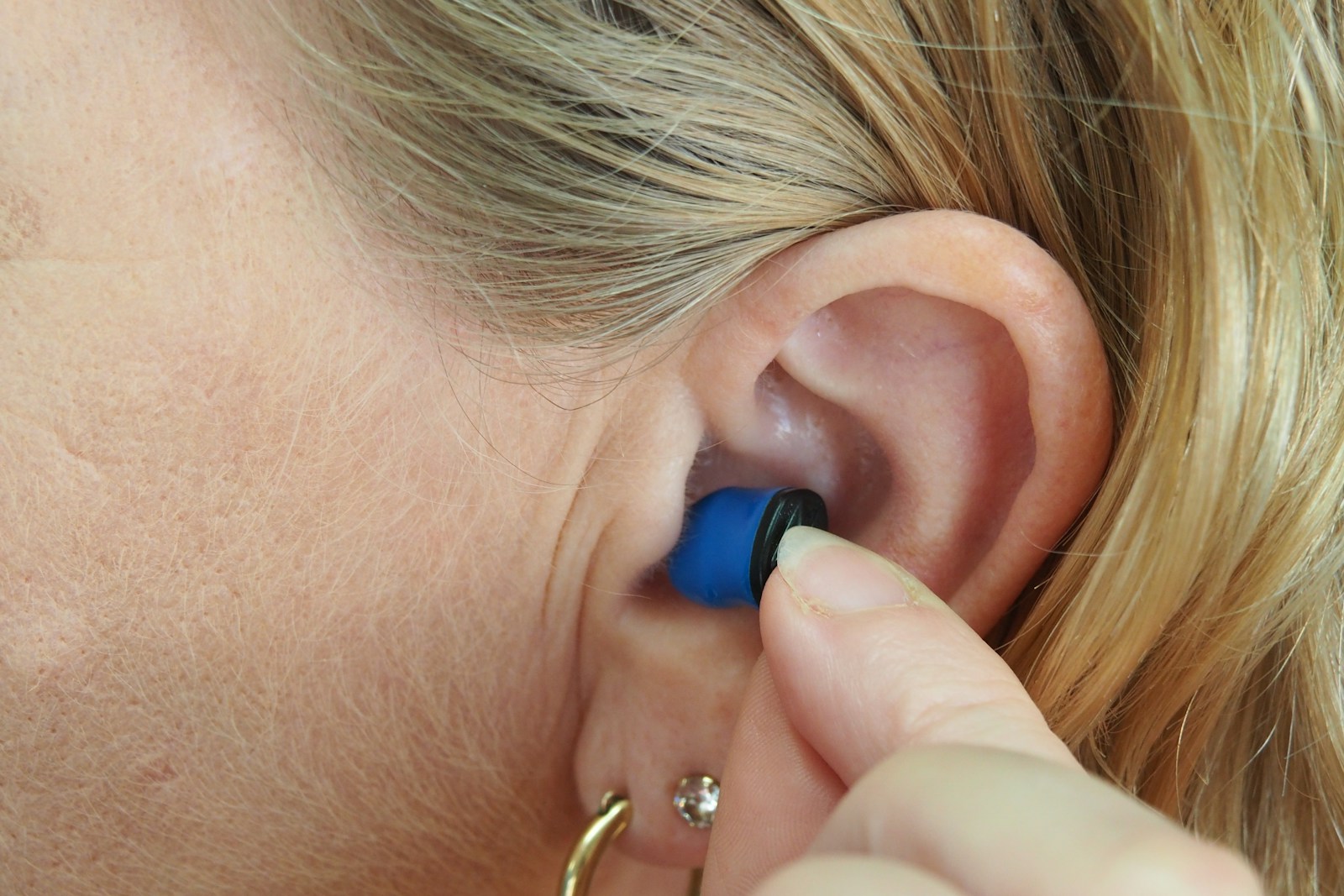“I’m sorry, I didn’t hear you. Could you please say that again?”
Regardless of your age, you’ve probably had to ask someone to repeat their words. But as we get older, it may seem we are making that request more frequently. When should you be worried?
Most audiologists agree that the time to be most concerned about hearing loss is while you’re young.
Though often associated with aging, most hearing loss is caused by the cumulative effects of daily noise exposure — and it’s not just those who work in factories or at airports who suffer. The Centers for Disease Control and Prevention reports that almost 25% of American adults age 20–69 have noise-induced hearing loss. More than half (53%) have no significant occupational exposure to loud noises.
Sources of noise
So where is the noise coming from? Sources of excess noise exposure in everyday life include home appliances, power tools, personal audio devices, movies, restaurants, concerts, sports events, and yes, even church services.
 Repeated exposure to loud noises can overwork the cells and nerves in the ear, causing temporary damage in the short term (e.g., the way sounds seem muffled after a loud concert) that contributes to permanent damage (i.e., hearing loss) in the long term.
Repeated exposure to loud noises can overwork the cells and nerves in the ear, causing temporary damage in the short term (e.g., the way sounds seem muffled after a loud concert) that contributes to permanent damage (i.e., hearing loss) in the long term.
Along with the other senses, hearing helps us communicate with others and process stimuli from the world around us. Consequently, a decline in hearing acuity can lead to significant lifestyle and health impacts, including:
- Balance issues and increased risk of falls resulting from damage to nerves in the inner ear.
- Social isolation and depression resulting from avoiding group activities (such as worship services) where it might be hard to hear what is being said.
- Cognitive decline (dementia) resulting from withdrawal from social and physical activities that promote overall mental and physical health.
Risk of dementia
Though every person’s situation is different, a study published last year in The Lancet suggests older adults at greater risk of dementia may be able to decrease their rate of cognitive decline by nearly half by utilizing hearing aids and other hearing interventions. Lead researcher Dr. Frank Lin said those results could be attributed to improved communication and increased social engagement. (Read more details about this study here.)
“The clinical takeaway is that almost anyone with hearing loss as an older adult should get their hearing checked and address hearing issues if there are any,” Lin said. “There’s really no downside to it. Hearing intervention comes at no risk.”
While hearing aids are the most common intervention, participants in the Johns Hopkins study also worked with audiologists who provided support and assistance with using their hearing aids correctly. That is important, Lin noted.
Hearing aids are now available over the counter at much lower costs than in the past. Still, the American Speech-Language-Hearing Association (ASHA) reported in September that just a fraction (2%) of American adults age 40 and older who have hearing difficulties report purchasing OTC hearing aids. Without proper instruction and support, many who try hearing aids may stop wearing them.
“This is why ASHA advises the public to promptly seek a comprehensive hearing evaluation from certified audiologists before they do anything, be that purchasing an OTC or taking some other step. Insurance providers cover these evaluations, which ensure that care is appropriate and effective,” said Janice R. Trent, doctor of audiology and ASHA vice president for audiology practice. “The longer one waits to act, the greater and more costly problems can become.”
When to get screened
For most adults, a baseline hearing test is a good idea before the age of 60. Depending on your physical health, medical conditions, medications or lifestyle factors, this test may need to be repeated at regular intervals. Consult your primary care physician to determine a schedule that makes sense for you.
- Having trouble hearing over the phone.
- Having trouble understanding conversations, especially in a noisy environment.
- Hearing a ringing or other unusual sound in your ears.
Most health insurance policies, including Medicare, will cover a comprehensive hearing exam (some may require a referral from your health care provider). Hearing tests require no special preparations and have no significant risks, but the results might lead to steps that help you maintain better physical, mental, social and spiritual health as you age.






Share with others: